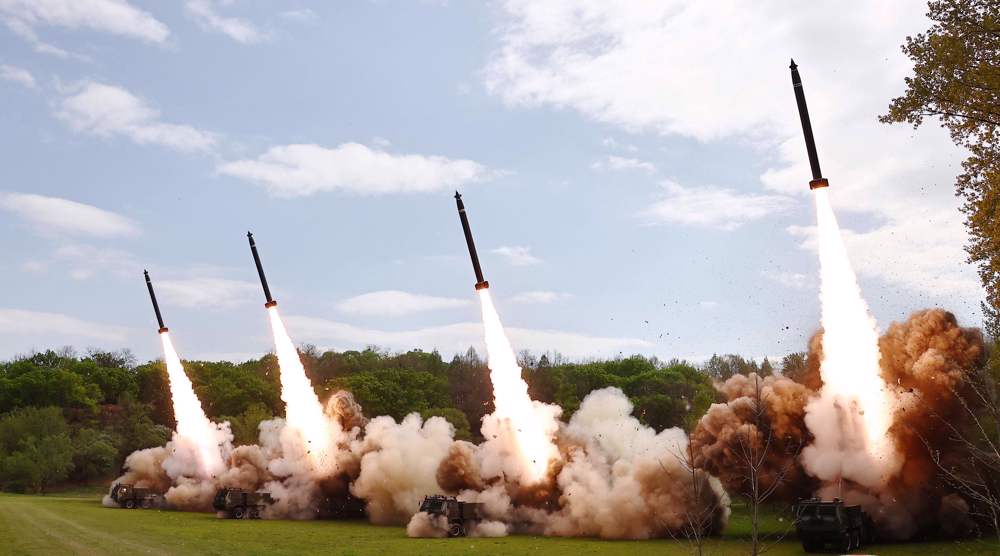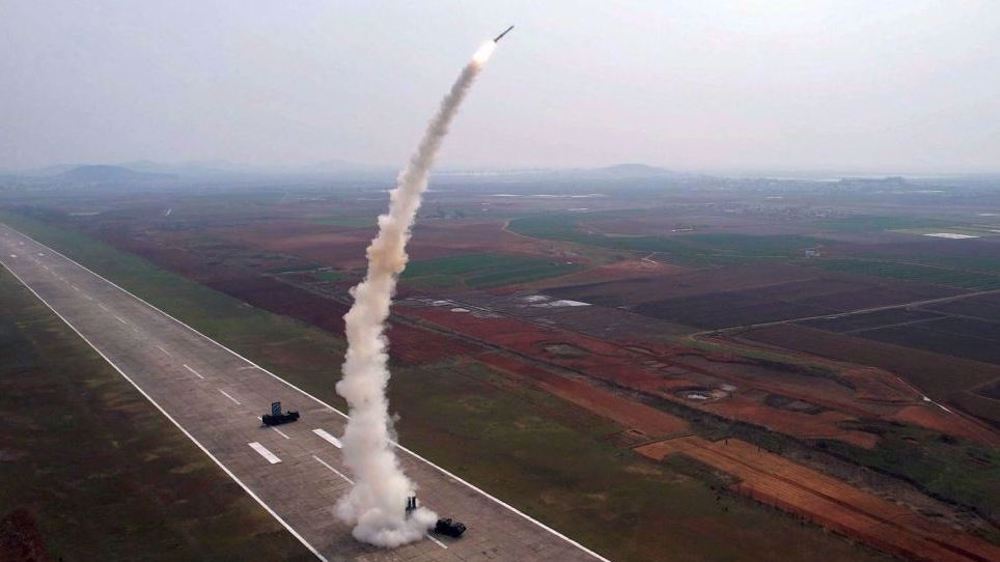South Korea resumes anti-North broadcasts
South Korea resumes its propaganda broadcasts into North Korea across the border and Pyongyang increases the number of forward-deployed troops.
The measures ratchet up tensions following North Korea’s announcement of successful testing of a hydrogen bomb.
While the US and its allies have cast doubt on the testing allegation, they have pledged to launch a "united and strong" response and the UN Security Council has threatened North Korea with new sanctions.
On Friday, South Korea resumed high-decibel propaganda broadcasts across the border as North Korea celebrated its leader Kim Jong-Un’s 32nd birthday.
The broadcasts include a mix of everything from music to news and rhetoric against the North Korean government. They are reminiscent of psychological warfare tactics that date back to the 1950-53 Korean War.
North's reaction
Last year, similar broadcasts prompted Pyongyang to threaten artillery strikes against the loudspeaker units unless they were switched off.
On Friday, North Korea was reported to have increased the number of troops at some forward-deployed units as South Korea readied to restart the broadcasts.
A South Korean official said the military had heightened the level of alert around the locations where the propaganda was being broadcast.

There was no immediate North Korean response but the broadcasts are likely to draw a furious reaction.
Seoul vowed to retaliate against any attack on the equipment and raised its cyber security alert level.
South Korea also said its foreign minister would speak with his Chinese counterpart later on Friday and the US called on China to end "business as usual" with Pyongyang.
China role and US threats
China, which is an ally of North Korea, said it was willing to communicate with all parties, including the United States.
The Global Times, an influential Chinese tabloid published by the ruling Communist Party's official People's Daily, said in an editorial it was unfair to expect China alone to bring about change in Pyongyang.
"There is no hope to put an end to the North Korean nuclear conundrum if the US, South Korea and Japan do not change their policies toward Pyongyang,” it said.
In the US, Republicans and Democrats in the House of Representatives prepared to further tighten sanctions on North Korea.
It was unclear how more sanctions would deter North Korea, which has conducted four nuclear tests since 2006 while Washington has cranked up pressure.
A South Korean military official was reported as saying that Seoul and Washington had discussed the deployment of US strategic assets on the Korean peninsula.

Media reports said those assets could include B-2 and B-52 bombers, and a nuclear-powered submarine.
In 2013, North Korea threatened a nuclear strike on the US after Washington sent a pair of nuclear-capable B-2 stealth bombers on a sortie over South Korea in a show of force.
Announcing the hydrogen bomb test on Wednesday, the North Korean leader said the weapons would be needed to protect North Korea from what he called "US aggression."
‘Europe could die’, President Macron warns at Sorbonne University
Palestinians released from Israeli jails recount horrible ordeal
'Unprecedented': Thousands of flights cancelled in Europe amid strike
Iran urges US to stop support for Israel as university revolt spreads
Gaza faces imminent famine as people starving to death: UN warns
North Korea to stand up to sanctions, bolster military power: Official
Hezbollah says 2,000 Israeli forces killed, injured in operations since Gaza war began
War of wills: Iran army chief vows crushing response to any aggression










 This makes it easy to access the Press TV website
This makes it easy to access the Press TV website